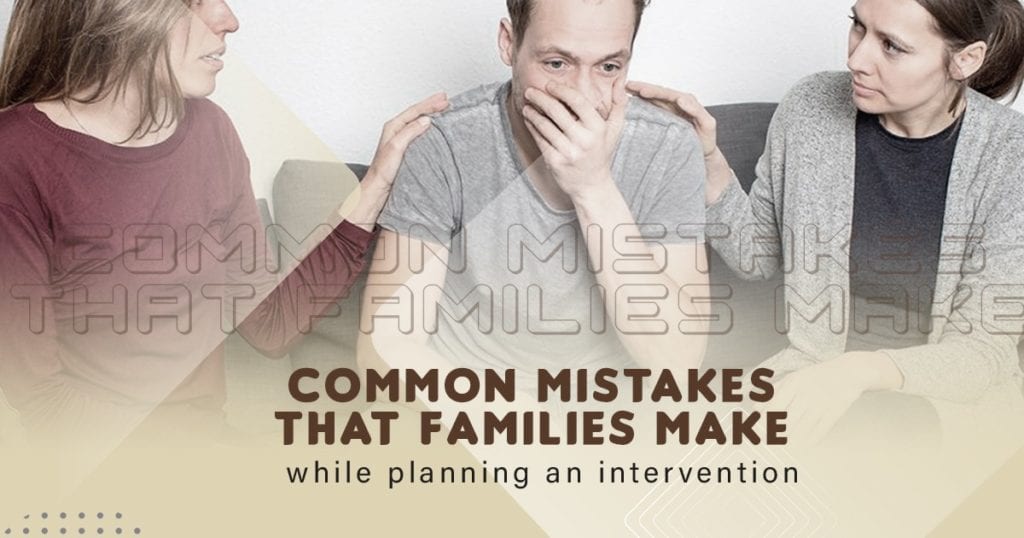
According to the National Institute on Drug Abuse, “over 23 million adults in the United States struggle with drug addiction at some point in their lives” That’s more than 10% of American adults! Of the people who struggle with addiction, 75% report never receiving any drug addiction treatment. It’s hard to admit when you need help. While you’re using drugs, you may not even realize the pain and damage you’re causing to your family and friends. For a person struggling with drug addiction, life in recovery often beings with planning an Intervention.
Anchored Tides Recovery has 20+ years of combined experience helping women take steps towards a life in recovery. In our experience, we know that many times the road begins with a formal intervention. This blog will go over some tips and common mistakes made when it comes to interventions for substance abuse. An intervention is a helpful and sometimes necessary step in the healing process, but there can be negative consequences if you do not approach the situation properly.
If you’re wondering how to stage an intervention, an excellent place to start is by understanding the process of a successful intervention, and clearly defining the primary goal.
 The adverse consequences of substance abuse are well-known, yet a person trapped in the vicious cycle of addiction does not realize it until it’s too late. Drug dependence affects the quality of your life, induces mental health issues, causes withdrawal symptoms, and even suicidal behavior. Under the influence of drugs, a person loses the will to reconstruct their lives. At this stage, you may need to step in for crisis intervention and save your loved ones from a handicapped life of substance abuse.
There has been an increase of interventions occurring in recent years due to shows like Dr. Phil or Intervention on A&E. The reason these segments are so popular on television is that an intervention is usually a dramatic and emotional experience. Despite Hollywood’s attention, walking in on an intervention for substance use disorder might be a drug user’s worst nightmare. Interventions are often met with resistance and hostility, bringing us to #1 on our list to approach interventions properly and have a clear plan of action.
The adverse consequences of substance abuse are well-known, yet a person trapped in the vicious cycle of addiction does not realize it until it’s too late. Drug dependence affects the quality of your life, induces mental health issues, causes withdrawal symptoms, and even suicidal behavior. Under the influence of drugs, a person loses the will to reconstruct their lives. At this stage, you may need to step in for crisis intervention and save your loved ones from a handicapped life of substance abuse.
There has been an increase of interventions occurring in recent years due to shows like Dr. Phil or Intervention on A&E. The reason these segments are so popular on television is that an intervention is usually a dramatic and emotional experience. Despite Hollywood’s attention, walking in on an intervention for substance use disorder might be a drug user’s worst nightmare. Interventions are often met with resistance and hostility, bringing us to #1 on our list to approach interventions properly and have a clear plan of action.
 Here are a few aspects of going over in your rehearsal:
Here are a few aspects of going over in your rehearsal:
What is an Intervention?
A typical intervention for an addict is an orchestrated attempt by a support group – usually close friends or family members – to convince someone to seek professional help for drug or alcohol dependence. Loved ones have a chance to share their emotions and address personal experiences regarding how the addicted person’s drug use has affected them. Once their side of the story is shared, they have the opportunity to show encouragement and support for their loved one to seek help. The adverse consequences of substance abuse are well-known, yet a person trapped in the vicious cycle of addiction does not realize it until it’s too late. Drug dependence affects the quality of your life, induces mental health issues, causes withdrawal symptoms, and even suicidal behavior. Under the influence of drugs, a person loses the will to reconstruct their lives. At this stage, you may need to step in for crisis intervention and save your loved ones from a handicapped life of substance abuse.
There has been an increase of interventions occurring in recent years due to shows like Dr. Phil or Intervention on A&E. The reason these segments are so popular on television is that an intervention is usually a dramatic and emotional experience. Despite Hollywood’s attention, walking in on an intervention for substance use disorder might be a drug user’s worst nightmare. Interventions are often met with resistance and hostility, bringing us to #1 on our list to approach interventions properly and have a clear plan of action.
The adverse consequences of substance abuse are well-known, yet a person trapped in the vicious cycle of addiction does not realize it until it’s too late. Drug dependence affects the quality of your life, induces mental health issues, causes withdrawal symptoms, and even suicidal behavior. Under the influence of drugs, a person loses the will to reconstruct their lives. At this stage, you may need to step in for crisis intervention and save your loved ones from a handicapped life of substance abuse.
There has been an increase of interventions occurring in recent years due to shows like Dr. Phil or Intervention on A&E. The reason these segments are so popular on television is that an intervention is usually a dramatic and emotional experience. Despite Hollywood’s attention, walking in on an intervention for substance use disorder might be a drug user’s worst nightmare. Interventions are often met with resistance and hostility, bringing us to #1 on our list to approach interventions properly and have a clear plan of action.
Get Help From a Professional Interventionist
Trying to hold an intervention without first seeking professional help is a common mistake. There are many rehabilitation programs offered at various treatment centers that employ intervention specialists to aid you in the process. They act as a host to the event and make sure that everything is done correctly. When appropriately handled, an intervention should remain constructive towards the ultimate goal of supporting the addict’s health and recovery from substance abuse. There is a cost involved in hiring professional treatment providers. Still, this cost is worth it because this step is often the difference between your loved one storming out or your loved one accepting help. Substance abuse behavior brings various health issues, and sometimes people involved in the intervention have held on to a lot of frustration and anger. A moderator with no emotional attachment can make sure that these emotions get appropriately expressed. If they aren’t, then you may trigger an altercation, resistance, or even violence. A professional moderator has enough experience to control the situation before it escalates into something destructive. The sensitive nature of the emotions involved in the treatment process leads us to our next tip for success on the road to recovery.Choose The Intervention Team Carefully
An intervention is a group effort. If you are organizing an intervention for an addict, you will have to determine the form of treatment and the right people to invite to join. You want to avoid involving too many people because you run the risk of intimidating or overwhelming the person. A small intervention team of 4 to 8 people who are closest to the person and have been affected the most is best. The ideal attendee is someone whose opinions matter the most to the addict, someone they love and respect, who has also personally been affected by their addictive behaviors. You may know an attendee who seems ideal in some cases, but they are harboring resentment in a negative or unhealthy way. If you think this person will have too difficult a time expressing their emotions constructively and calmly, it may be best not to include them. Tell them there will be an intervention but let them know you think it would be best for them not to be involved in the process just yet. Once you have the right group of people for participation in treatment for substance abuse, you’re ready for the next step.Rehearse
There may only be one opportunity to do the intervention the right way. Since it is fragile and volatile by nature, your best chance for success comes from being fully prepared. People under the effects of drugs are often reluctant to the idea of a treatment program because they don’t want to appear vulnerable and weak. Here are a few aspects of going over in your rehearsal:
Here are a few aspects of going over in your rehearsal:
- Understand their patterns of behavior
- The structure and type of intervention
- Decide who will speak and when
- Take turns practicing what you will say.
- Discuss a plan of how you will get your addicted loved one to the intervention
- Pick a day and time for the actual intervention.
- What is the goal after the intervention?































